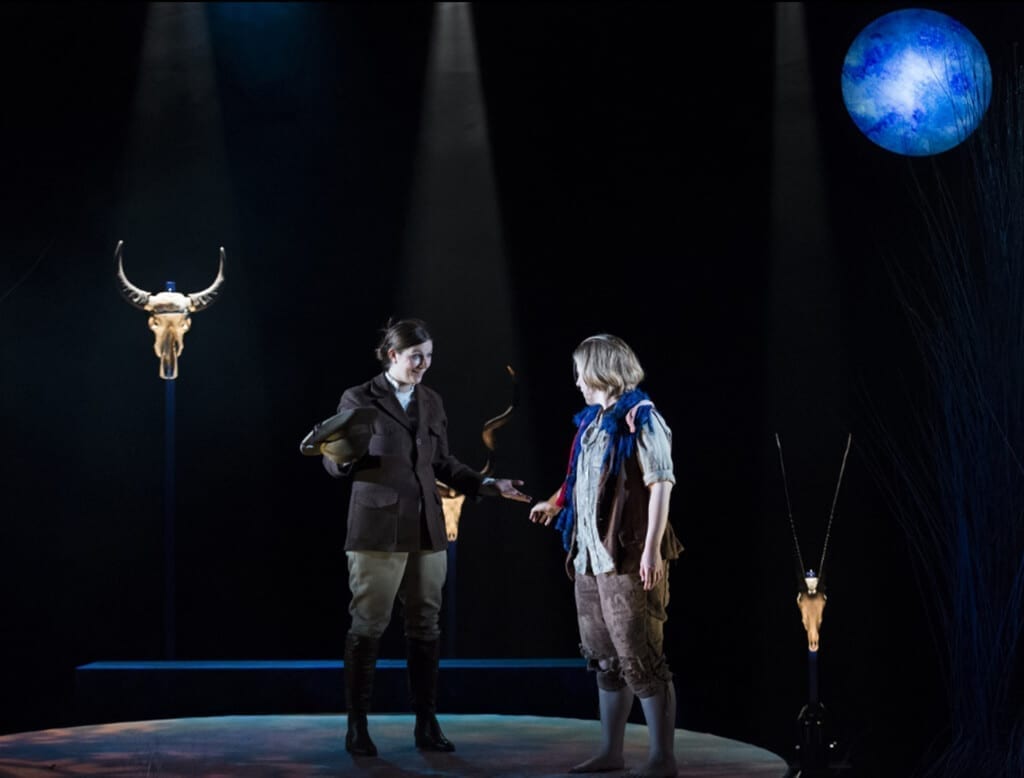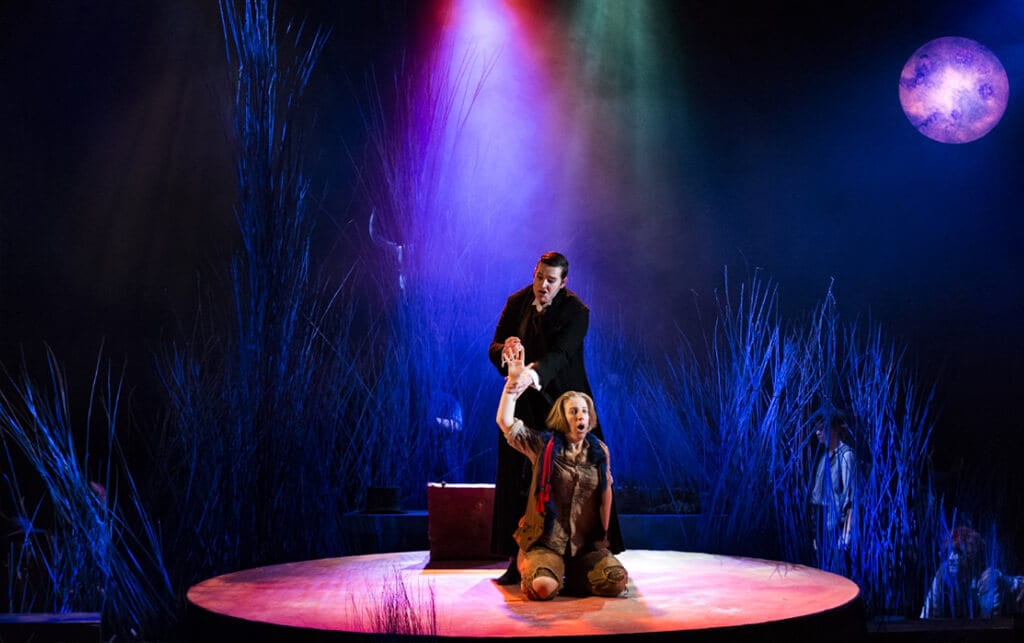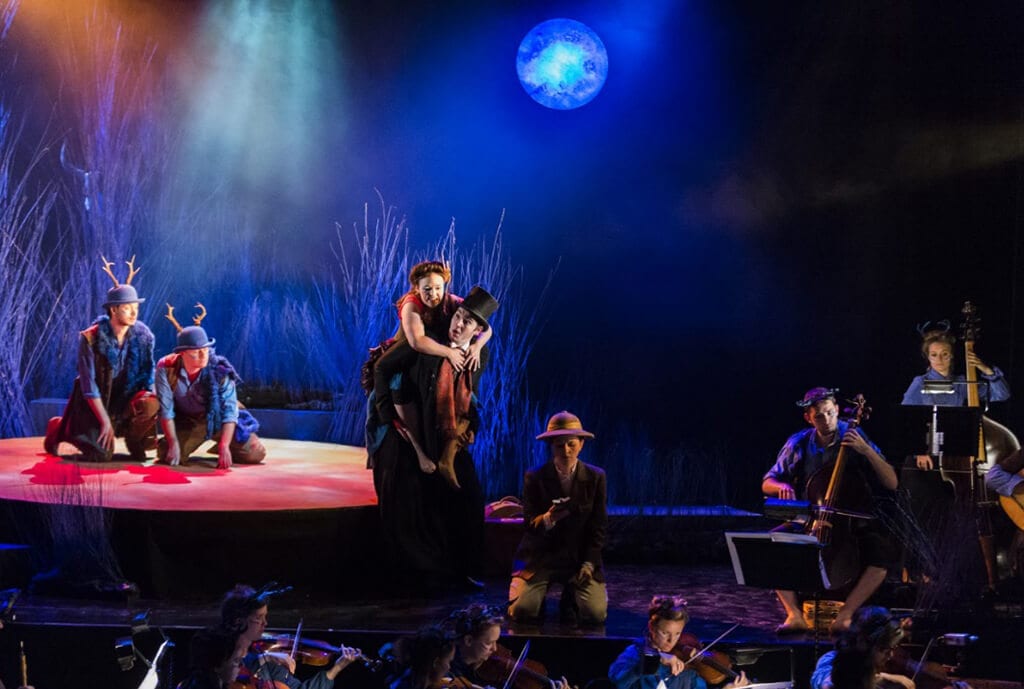As is now traditional, the Longborough Opera Festival is ending its current season at its home base with a production dedicated to giving young singers a platform to strut their stuff. This year the production of Alcina is the finale of a three-year Handel project.
As before in this strand of their work at Longborough, the interesting, small-scale production is conceived and developed by director Jenny Miller. The concept is captivating from the opening moments, with a small band of 12 being integrated visually and suggesting they are among the people that the sorceress has turned into animals on her enchanted, magical island. Once again, Jeremy Silver conducts from the harpsichord with a real sense of baroque style and with truly idiomatic grace. The platform on the stage allows the action to be centred at times and to suggest the wanderings away from the centre that are part of the story; and every singer works diligently and convincingly in a well-rehearsed and completely committed ensemble.
It is almost invidious not to mention every single name of both the singers and the musicians. The story comes across with real clarity (though occasional lapses in the translation) and as the opera progresses we move more and more deeply into the psyches of each individual and come to understand their inner turmoil and drives. Handel’s music evokes a real sense of compassion for all the characters, including that troubled witch, Alcina, played arrestingly by Julia Sitkovetsky. One is reminded by her singing why this is such a star making role! I was completely won over by the Ruggiero of Hanna-Lisa Kirchin, the Morgana of Lucy Hall and the Bradamante of Anna Harvey. The youth of these singers is a huge asset in this story – it somehow makes it more convincing and the stage movement has a fresh athleticism that enhances the tale. Rosie Lomas was a sweet and delightful-voiced Oberto; Matthew Durkan made a good impression as Melisso and Christopher Diffey was sonorous and completely captivating as a very handsome Oronte. With the male chorus handled by William Smith and James Atkinson, this was a cast and an approach that did real justice to Handel’s operatic vision both dramatically and musically. The approach is small scale; but the impact was strong.
There is a further performance of this production in London on Thursday, 4 August, at the Greenwood Theatre of King’s College. If you like Handel operas and have the opportunity, you should go along.



